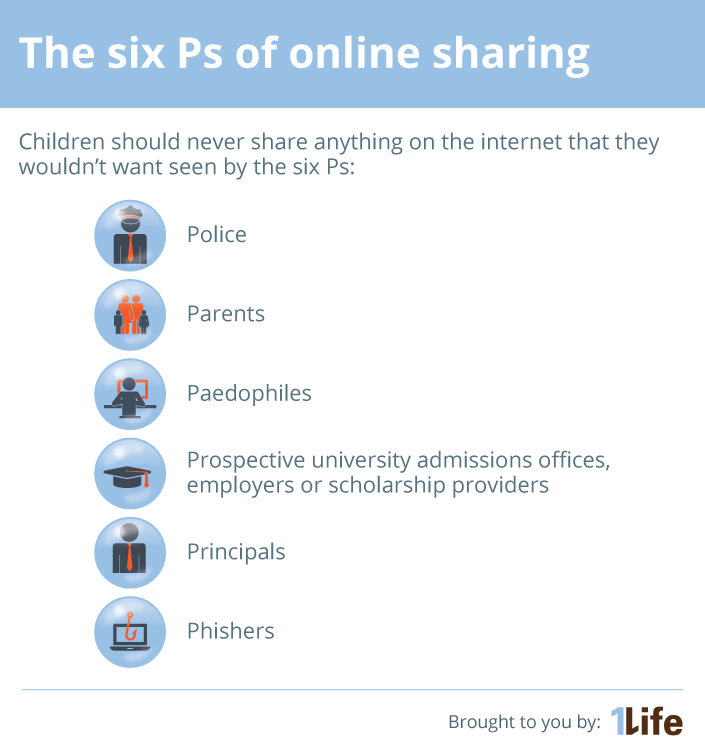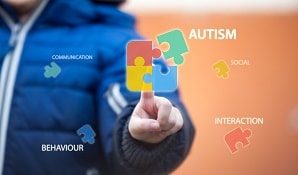The moment you get your child a smart phone, you are giving them access to a world of possibility. Unfortunately, not all those possibilities are positive, and parents need to be aware of what their children might encounter in cyberspace and the real world as a result of this newfound access.
parents have to establish rules in a space that they may not properly understand themselves
According to Emma Sadleir, social media law expert and author of “Selfies, Sexts and Smartphones: A teenager’s online survival guide”, the real risk lies in the fact that parents have no idea of what it is that their children can do or see on social media. “They are streaks ahead of their parents in terms of curiosity and ability,” she says. “This means that parents have to work hard to keep up with them and establish rules in a space that they may not properly understand themselves.”
What follows are some of the things that children will encounter online, almost as soon as they have their new smartphone in their hands - which Emma recommends should not be before the age of 13.
PornographyEmma says that the average age at which South African children first encounter pornography is 11. This means that they are receiving disturbing content and questionable information about sexuality at an age when they are extremely impressionable and far too young to properly process it. Either from curiosity or by mistake, children can access the darkest corners of the internet for violent or perverse representations of sex.
Emma says it’s important not to have blind faith that your child doesn’t have an interest and will not pursue pornography. Even if you trust your child, or think that pornography will not interest them, it is vital that you establish rules and monitoring protocols. But most importantly, speak to them about healthy attitudes to sex, prepare them for what they could possibly encounter, and encourage them to ask you questions about anything that they see that they find disturbing or confusing.
Predators and paedophilesFor many, the purpose of social media accounts like Instagram is not to share information and have fun with friends, but to attract as many followers as possible. Even if your child isn’t doing this, friends may put them in touch with friends – and a stranger can find their way into the social network.
While it’s likely that these strangers are just other unknown kids or interested followers, it is also possible that they could be paedophiles or predators, grooming children for real-world contact or to get compromising pictures of them. Remember to explain to your children that predators don’t necessarily look like predators and will often “catfish” with a fake profile, details and persona.
Harmful ideas and hurtful exchangesThe internet can be a dark and twisted place and giving thousands of strangers all around the world the ability to exchange ideas isn’t always the healthiest thing. Emma points out that there are a lot of discussion forums and websites that glamourise mental illness, eating disorders and suicide, for instance, encouraging young teenagers to want to imitate the looks and actions of troubled internet influencers. Even seemingly harmless websites like Buzzfeed post articles like “27 Tumblr Posts You’ll Only Get If You Have Depression”, which make depression seem funny and relatable.
At the extreme end, children can even be enticed or influenced by internet fads, like the two girls in the United States who murdered another girl in the name of Internet bogeyman “Slenderman”.
CyberbullyingThe most common danger that your child faces online is that of cyberbullying. Your child can fall victim to bullies who are known to them, or to internet strangers who make a point of targeting others online. The hurtful things that get said online - often with no consequence to the bully - can be damaging to your child’s self-esteem and even, in extreme cases, lead to depression and thoughts of suicide. And in our Always On culture, bullies can harass their victims 24/7.
It is important to prepare your child for the eventuality of cyberbullying, and to encourage them to report bullies to you or the school, and to the platform if that’s possible. Kids should know that simply blocking someone is a good first line of defence.
SextingThe biggest risk to your child is not actually what they might find, but what they might put out onto the internet themselves, says Emma. Young girls are encouraged to share naked photos or intimate descriptions of themselves with boys as a form of social currency. If they don’t they are labelled as prudes. If they do, they stand the risk (and it’s a very real one) of having their pictures shared far and wide.
“My legal practice is inundated with requests from children in trouble,” says Emma. “In one case, a 13-year-old girl from a good school in Joburg met a boy at a party. He hounded her repeatedly for nude pictures, promising to never show anyone, and she eventually gave in. Guess what, he shared the photos with all his friends on social media. And the girl tried to kill herself.”
And remember that your child isn’t always going to be the victim. It could be your child who’s sharing the naked pictures or hurtful stories about another child.
“In South Africa, a child over the age of 14 has full criminal capacity and can be prosecuted for any offence he or she committed – and distributing underage pornography or publishing libel are criminal offences. For civil proceedings, a child as young as 7 can be sued,” Emma says.
What parents should do to prepare and protect their childrenEstablish clear rules about cell phone usage from the moment that your child has a smart phone. Some of the recommendations might seem a little extreme but remember that a 13-year-old is still a child and not nearly mature enough to have access to a whole world of good and bad information at their fingertips. You can increase privileges and privacy as your child ages and matures, and you judge that they have sufficient self-confidence, online sense and trustworthiness.
- Have a family policy of no smart phones before the age of 13. If for some reason your child needs a phone before then, buy them a “dumb” phone so they can make calls and send messages, but not much else. It’s still worth monitoring their usage, though.
- Have a “no internet behind closed doors or after bedtime” policy to keep your kids from having too much unfettered access to the internet. Aside from online safety, children simply shouldn’t be spending too much time staring at screens, especially not late at night.
- Teach your children to NEVER share personal information, including phone numbers or addresses, where they go to school, or where they are going to be. If they have any reason to consider doing this, tell them that they must ask you first. Remember that sharing photos of your school uniform is another way that a child’s location can be identified, and this should be discouraged.
- Teach your children to NEVER share photos of themselves naked or in provocative poses. Even if they trust the recipient completely, it is just too big a risk to take. Often the very reason that someone is asking for photos is because they want to show their friends.
- Make it a condition of smart phone usage that you are allowed to check their browsing history (they are not allowed to clear it), keep an eye on their apps, monitor their contacts, friends and followers, and be their friend or follower on their social media platforms.
- Turn up all privacy settings to the max on any social app that your child uses. Accounts should be private (not public) and only known contacts should be allowed to access them.
- Parents should also educate themselves about all the apps that their children might be using or encounter so that they are prepared for the realities and risks. You owe it to your children to understand this new world that they socialise in.
Talking to your kids about online safety
- As a parent, it is important to keep the lines of communication with your children open. Never shame them for asking questions or expressing interest, and even if they do things that you have expressly forbidden, try to discuss why, and how it made them feel, rather than punishing them with no discussion.
- Teach your children to be kind. It is as important to avoid bullying as it is to avoid being bullied. It is very easy to lose sight of the fact that people on the internet are human beings with feelings, so make your child aware that they could hurt others with cruel comments. Ask the question: “How would you feel if…?” or “How do you think she felt when she read that?”
- There’s nothing wrong with a few scare tactics. Share stories with your children of instances of cyberbullying, of children being prosecuted for bad online behaviour or of having their private photos shared publicly. This will help your children to understand that there can be real-world consequences for their online behaviour.
Keep them safe!The internet and social media are a great unknown for parents. But as Emma has pointed out, you can’t allow your lack of understanding to justify not knowing what your children are doing, and who they are being influenced by. Don’t turn a blind eye. Take the time to establish reasonable rules for your family, and everyone will be a whole lot safer and have their privacy safeguarded well into adulthood.





